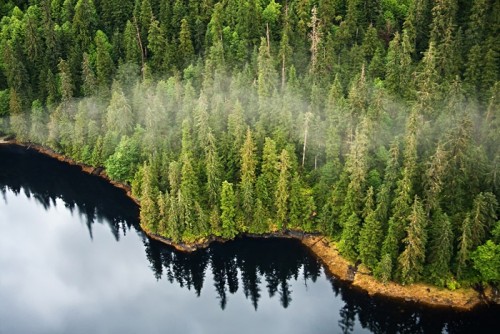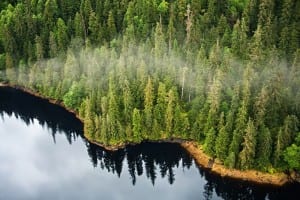The 9th Circuit Court of Appeals struck down a 2003 exemption on Wednesday that would have made it possible to build roads through the Tongass National Forest.
Malena Marvin, Director of the Southeast Alaska Conservation Council, says this decision underscores management that’s already happening.
“The Forest Service is already not planning sales in roadless areas and proceeding in the same direction as the rest of the country in preserving these areas for future generations,” she said. “So we’re really seeing the final legal decision just guaranteeing that direction.”
“Roadless areas” are habitat for endangered species, subsistence hunting and fishing, outdoor recreation, and sacred sites.
In 2001, the Department of Agriculture created the “Roadless Rule,” limiting road construction and logging on nearly 50 million acres of wilderness. But the Tongass National Forest was exempted two years later when George W. Bush was in office. “Economic hardship” for timber-dependent Southeast communities was given as the reason.
Earthjustice attorney Eric Jorgensen says a coalition of conservation groups and Alaska Native tribes challenged that ruling. Earthjustice provided legal representation, “and argued that the agency hadn’t adequately explained its rationale for reversing course and deciding to exempt the Tongass from the protection.”
In a press release, Sen. Lisa Murkowski called the ruling a “setback for the economies of Southeast Alaska.”
Owen Graham of the Alaska Forest Association echoed that sentiment. He believes the Forest Service has “monopoly supply” over the timber industry in the region.
“They won’t allow enough timber sales to keep our industry alive and we’re dying and we have to continue to struggle for timber supply or fail completely…” he said. “It’s hindering all kinds of development for no good reason other than pacifying environmental groups but we hope to get it overturned eventually.”
The state could still petition the Supreme Court to exempt the Tongass from the roadless rule.







